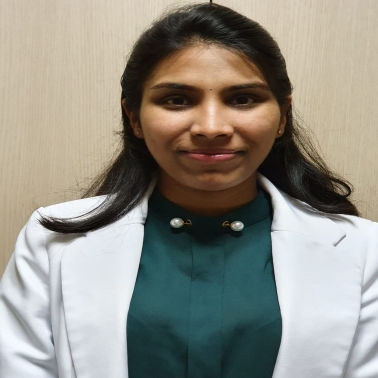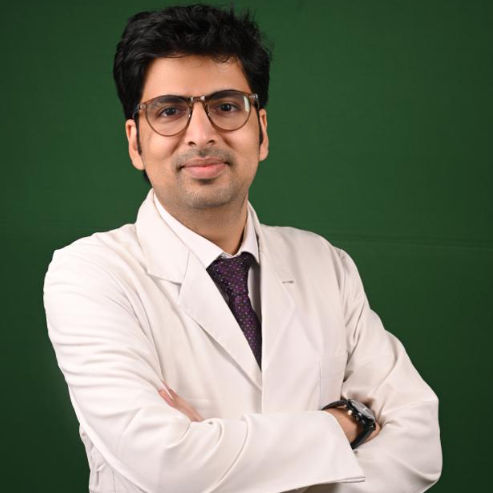Welcome User
Relevance
Consult Dermatologists Online - Hair & Skin Doctors (337 doctors)

Dr Ritika Shanmugam
Dermatologist
9 Years • MBBS, MD (Dermatology, venereology, Leprosy)
Bangalore
Apollo 24|7 Clinic - Karnataka, Bangalore

Dr. Hemalatha Naidu M
Dermatologist
5 Years • MBBS, MD (Dermatology)
Bangalore
Apollo 24|7 Clinic - Karnataka, Bangalore
(400+ Patients)

Dr. K Chetana
Dermatologist
10 Years • MBBS, MD ( Dermatology)
Hyderabad
Apollo 24|7 Clinic, Hyderabad
Dr. Shreya Sushil Poddar
Dermatologist
9 Years • MBBS,MD (Derm, Venn & Lep)
Asansol
Mishra's Medcare, Asansol
(25+ Patients)

Dr. Benugopal Mohapatra
Dermatologist
10 Years • MBBS, DNB (DVL)
Barasat
Diab-Eat-Ease, Barasat

Dr Madhu R
Dermatologist
5 Years • MBBS MD -Dermatology
Bengaluru
Apollo Medical Center, Marathahalli, Bengaluru

Dr. Sumalatha C B
Dermatologist
10 Years • MBBS, DDLV, Fellowship in Dermato Surgery
Bengaluru
Apollo Clinic, Sarjapur Road, Bengaluru

Dr. Sree Lalitha V
Dermatologist
9 Years • MBBS, DDVL , FRGUHS , Fellowship in Cosmetology. Fellowship in Dermatosugery - national skin centre ,Singapore. University medal holder in postgraduation and national scholarship in IADVL dermacon 2017
Bengaluru
Apollo Medical Center, Marathahalli, Bengaluru

Dr Ekansh Shekhar
Dermatologist
10 Years • MBBS MD
Lucknow
Apollo Clinic Hazratganj, Lucknow
Dr.j Girishma
Dermatologist
6 Years • MBBS MD DERMATOLOGY
Bengaluru
Apollo Medical Center, Marathahalli, Bengaluru
Book Consult for Dermatologist Online
Booking an appointment with a top dermatologist is now easier than ever with Apollo 24|7. Our platform offers convenient online dermatologist consultation with trusted skin specialists from the comfort of your home.
You can book an appointment with a dermatologist online and choose from a wide range of appointment slots that suit your schedule. With Apollo 24|7, you have access to the best skin or hair doctors who can help you manage various skin conditions, including acne. Our experienced dermatologists provide personalised care and treatment plans to help you achieve healthy, glowing skin. Don't wait any longer; book your dermatologist consultation today and take the first step towards better skin health.
What is Dermatology?
Dermatology is a branch of medicine that focuses on diagnosing, treating, and preventing conditions affecting the skin, hair, and nails. It deals with a wide range of issues, from common problems like acne, eczema, and psoriasis to more severe conditions such as skin cancers and autoimmune disorders. Dermatology plays a crucial role in healthcare by promoting skin health, early detection of skin cancers, and managing chronic skin conditions, ultimately improving patients' quality of life.
Who is a Dermatologist?
Dermatologists, also known as skin specialists or acne doctors, are medical doctors who specialise in diagnosing and treating conditions related to the skin, hair, and nails. In India, becoming a dermatologist typically requires completing an MBBS degree, followed by a one-year internship and a three-year specialised dermatology training programme (MD in Dermatology or equivalent). Dermatologists must also pass certifying examinations and participate in continuing certification activities. They play a vital role in preventive healthcare by educating patients on protecting their skin from sun damage and other environmental factors, helping prevent skin-related diseases and improving overall well-being.
What Do Dermatologists Do?
If you're looking for a dermatologist near you, it is essential to understand the range of services they provide. Dermatologists offer a comprehensive approach to skin, hair, and nail health. Whether you need to book a dermatologist for an in-person visit or prefer an online dermatologist consultation, these experts are equipped to diagnose and treat various conditions. Some of the key responsibilities of dermatologists include:
Diagnosing and treating skin conditions like eczema, psoriasis, and rosacea
Performing skin cancer screenings and managing skin malignancies
Addressing hair and nail disorders, such as hair loss and fungal nail infections
Providing cosmetic treatments, including Botox injections, dermal fillers, and laser therapies
Educating patients on skin health, sun protection, and preventive care
What are the Other Sub-Specialities of Dermatology?
Dermatology encompasses several sub-specialities that focus on specific aspects of skin, hair, and nail health. Some of these subspecialties include:
Paediatric Dermatology: This sub-speciality focuses on diagnosing and treating skin conditions in children, from newborns to adolescents. Paediatric dermatologists are trained to manage issues like atopic dermatitis, birthmarks, and genetic skin disorders.
Cosmetic Dermatology: Cosmetic dermatologists specialise in procedures that improve the appearance of the skin, such as Botox injections, dermal fillers, laser treatments, and chemical peels. They also provide guidance on maintaining healthy, youthful-looking skin.
Dermatopathology: Dermatopathologists are experts in examining skin, hair, and nail samples under a microscope to diagnose conditions like skin cancers, infections, and inflammatory disorders. They work closely with dermatologists to ensure accurate diagnoses and appropriate treatment plans.
Immunodermatology: This sub-speciality focuses on skin conditions caused by immune system dysfunction, such as lupus, dermatomyositis, and pemphigus. Immunodermatologists work closely with rheumatologists and other specialists to manage these complex disorders.
Trichology: Trichologists specialise in diagnosing and treating hair and scalp disorders, including hair loss, alopecia areata, and scalp psoriasis. They may also provide guidance on hair care and nutrition for optimal hair health.
Dermatoepidemiology: Dermatoepidemiologists study the distribution and determinants of skin diseases in populations. Their research helps identify risk factors, develop prevention strategies, and improve public health policies related to skin health.
Genodermatology: This sub-speciality focuses on genetic skin disorders, such as ichthyosis, epidermolysis bullosa, and ectodermal dysplasias. Genodermatologists work with geneticists to diagnose and manage these rare conditions.
Photodermatology: Photodermatologists focus on skin conditions caused or exacerbated by light exposure, such as sunburns, photosensitivity disorders, and skin cancers. They provide guidance on sun protection and may use light-based therapies to treat certain conditions.
Infectious Dermatology: This sub-speciality deals with skin infections caused by bacteria, viruses, fungi, and parasites. Infectious dermatologists diagnose and treat conditions like cellulitis, shingles, and fungal infections, working to prevent the spread of communicable skin diseases.
What are the Examinations Conducted Under Dermatology or Tests Performed by a Dermatologist?
Skin specialists use various examinations and tests to diagnose skin, hair, and nail conditions accurately. Some of these examinations include the following:
Skin Biopsy: This procedure involves removing a small skin sample for microscopic examination to diagnose conditions like skin cancers, infections, and inflammatory disorders.
Dermoscopy: Dermatologists use a specialised magnifying tool called a dermatoscope to examine skin lesions closely, aiding in the early detection of skin cancers and other abnormalities.
Patch Testing: To diagnose allergic contact dermatitis, dermatologists apply small amounts of potential allergens to the skin and monitor for reactions over several days.
Skin Scraping: Dermatologists may gently scrape the skin's surface to collect samples for microscopic examination, helping diagnose fungal infections and certain parasitic infestations.
Wood's Lamp Examination: Using a special ultraviolet light, dermatologists can detect certain skin conditions, such as some types of fungal infections and pigmentary disorders.
Nail Clipping: Dermatologists may take a small sample of nail tissue to diagnose fungal infections or other nail disorders.
Trichogram: This test involves examining hair samples under a microscope to assess hair shaft abnormalities and diagnose conditions like alopecia areata and hair shaft disorders.
Tzanck Smear: Dermatologists use this test to diagnose viral infections like herpes simplex and varicella-zoster by examining skin cells under a microscope.
These examinations and tests help dermatologists provide accurate diagnoses and develop targeted treatment plans for various skin, hair, and nail conditions.
What are the Common Conditions & Diseases that Dermatologists treat?
Dermatologists, also sometimes known as skin or hair doctors, specialise in diagnosing and treating a wide range of skin, hair, and nail conditions. Here are some of the most common conditions and diseases they manage:
Acne: A common skin condition characterised by whiteheads, blackheads, pimples, and cysts, often caused by hormonal changes, bacterial infections, and clogged pores. Acne doctors specialise in treating this condition.
Eczema: An inflammatory skin condition that causes itching, redness, and dryness, often triggered by allergens or irritants.
Psoriasis: A chronic autoimmune condition that causes red, scaly patches on the skin due to rapid skin cell growth.
Skin infections: Bacterial, viral, or fungal infections such as impetigo, herpes, and ringworm that affect the skin.\
Skin cancer: Including melanoma, basal cell carcinoma, and squamous cell carcinoma, often caused by excessive UV exposure.
Hair loss: Thinning or balding of hair due to genetics, hormonal changes, or underlying medical conditions.
Nail disorders: Fungal infections, ingrown nails, and other conditions affecting the nails.
Rosacea: A chronic skin condition causing facial redness, visible blood vessels, and sometimes, bumps and pimples.
Vitiligo: An autoimmune disorder causing loss of skin pigment, resulting in white patches on the skin.
Warts: Growths on the skin caused by the human papillomavirus (HPV).
Reasons to See a Dermatologist
Consulting a dermatologist or skin specialist is crucial for maintaining healthy skin, hair, and nails. Here are some common reasons to book a dermatologist appointment:
Persistent Acne: If over-the-counter treatments fail to control your acne, a dermatologist can prescribe stronger medications and therapies.
Skin Cancer Screening: Regular skin checks by a dermatologist can help detect skin cancer early, improving treatment outcomes.
Eczema or Psoriasis Management: Dermatologists can develop personalised treatment plans to manage these chronic skin conditions.
Hair Loss: A dermatologist can diagnose the cause of hair loss and recommend appropriate treatments, such as medications or therapies.
Skin Infections: Persistent or severe skin infections may require prescription antibiotics or antifungal medications from a skin specialist.
Cosmetic Concerns: Dermatologists can address issues like aging skin, scars, and unwanted hair growth with various procedures and treatments.
Early diagnosis and preventive care by a dermatologist can significantly improve treatment outcomes and quality of life for many skin, hair, and nail conditions.
What Types of Procedures do Dermatologists Perform?
Dermatologists perform a variety of therapeutic and surgical procedures, including:
Biopsies: Removing a small sample of skin for laboratory analysis to diagnose skin conditions or rule out skin cancer.
Excisions: Surgically removing skin lesions, such as moles, cysts, or skin cancers, to prevent further growth or complications.
Mohs Surgery: A precise surgical technique used to remove skin cancers while preserving as much healthy tissue as possible.
Cryotherapy: Using liquid nitrogen to freeze and destroy warts, precancerous lesions, and other skin growths.
Laser Therapy: Utilising laser technology to treat various skin conditions, such as acne scars, pigmentation issues, and unwanted hair.
Chemical Peels: Applying a chemical solution to exfoliate and improve the appearance of the skin, addressing issues like acne, fine lines, and uneven skin tone.
Phototherapy: Exposing the skin to controlled amounts of natural or artificial light to treat conditions like psoriasis, eczema, and vitiligo.
Intralesional Injections: Injecting medications directly into skin lesions to treat conditions like keloids, cysts, or localised skin cancers.
Dermabrasion: A surgical procedure that uses a rotating instrument to remove the outer layers of the skin, improving the appearance of scars, wrinkles, and uneven skin texture.
Cosmetic treatments: Administer injectables like Botox and dermal fillers to reduce the appearance of wrinkles and restore volume to the skin.
Why Choose an Apollo 24|7 Dermatologist?
Apollo 24|7 dermatologists are highly skilled and experienced in diagnosing and treating a wide range of skin, hair, and nail conditions. Our team of dermatologists includes board-certified specialists who have undergone extensive training and stay up-to-date with the latest advancements in dermatology. Patients can access personalised care, advanced treatment options, and seamless consultations, both online and in-clinic, for comprehensive dermatological care. With online dermatologist consultation options, patients can receive expert advice and treatment recommendations from the comfort of their homes. Dermatologist reviews from satisfied patients attest to the quality of care provided by our team of skilled and compassionate skin specialists.
What to Expect When Visiting a Dermatologist?
Visiting a dermatologist for the first time can be a bit daunting, but knowing what to expect can help you feel more prepared and at ease. Here's what you can anticipate during your dermatologist consultation:
Thorough Medical History: Your dermatologist will ask about your current skin, hair, or nail concerns, as well as your medical history, medications, and family history of skin conditions.
Comprehensive Skin Examination: The dermatologist will carefully examine your skin from head to toe, looking for any signs of abnormalities, such as moles, lesions, or rashes.
Discussion of Concerns: You'll have the opportunity to discuss your specific concerns and ask questions about your skin health, treatment options, and preventive measures.
Diagnosis and Treatment Plan: Based on the examination and discussion, your dermatologist will provide a diagnosis and recommend a personalised treatment plan, which may include medications, procedures, or lifestyle changes.\
Education and Prevention: Your dermatologist will offer advice on how to care for your skin, protect it from damage, and prevent future issues, such as sun protection tips and product recommendations.
Follow-up Appointments: Depending on your condition and treatment plan, your dermatologist may schedule follow-up visits to monitor your progress and make any necessary adjustments.
How Can I Get an Appointment With a Dermatologist?
To get an appointment with a dermatologist, you can:
Book Online: Visit the Apollo 24|7 website and navigate to the "Dermatology" section. Select a dermatologist from the list of available specialists, choose a convenient date and time, and complete the booking process.
Use the Apollo 24|7 App: Download the Apollo 24|7 app on your smartphone, select the "Dermatology" speciality, and follow the prompts to book an appointment with your preferred dermatologist.
Call the Helpline: Contact the Apollo 24|7 helpline and speak with a representative who can assist you in booking an appointment with a dermatologist at your preferred location and time.
Visit an Apollo Clinic: You can also visit your nearest Apollo Clinic and request an appointment with a dermatologist. The clinic staff will help you schedule an appointment based on the dermatologist's availability.
When booking an appointment, be prepared to provide your personal information, medical history, and any referral documents if required. You can also check the dermatologist fee and read dermatologist reviews before booking to make an informed decision. To find dermatologists near me, simply use the location filter on the Apollo 24|7 website or app.
FAQs
What is a dermatologist?
A dermatologist is a skin or hair doctor who specialises in diagnosing, treating, and preventing disorders related to the skin, hair, and nails. In India, dermatologists undergo extensive training, including a 3-year MD (Doctor of Medicine) residency in dermatology after completing their MBBS, along with additional hours of specialised practice, to become experts in their field.
What does a dermatologist treat?
What does a dermatologist treat?
Dermatologists treat a wide range of conditions, including acne, eczema, psoriasis, skin infections, skin cancer, moles, warts, fungal infections, dry skin, contact dermatitis, and other skin conditions. They also perform cosmetic procedures such as dermal fillers, Botox, and laser therapy.
How often should I see a dermatologist?
It is recommended to visit a skin specialist at least once a year for a comprehensive skin examination to address skin health and detect any potential issues early. If you have chronic skin problems like acne or psoriasis, you may need to visit more frequently, every few months.
What should I expect during a dermatologist appointment?
During a visit, the dermatologist will discuss your medical history, medications, and health concerns. You may be asked to disrobe for a full-body skin check to identify any current or potential skin issues. The dermatologist may perform tests or procedures if necessary and provide a diagnosis and treatment plan.
When should I see a dermatologist?
You should see a dermatologist if you notice changes in a mole or patch of skin, persistent acne, itchy hives or rashes, scars from acne, unusual blemishes, hair loss, or any other persistent or bothersome skin conditions. Immediate attention is needed if you have areas on your skin that grow, change shape or colour, itch, bleed, or do not heal.
How can a dermatologist help with hair loss?
Dermatologists can diagnose the underlying causes of hair loss, such as pattern baldness, alopecia areata, scalp infections, hormonal imbalances, or nutritional deficiencies. They provide personalised treatment options, including medication, topical treatments, or hair restoration surgery using advanced grafting technology.
Can a dermatologist remove a cyst or mole?
Yes, dermatologists can remove cysts and moles. For cysts, the procedure typically involves local anaesthesia and surgical removal. For moles, the method depends on the size, location, and characteristics; options include surgical excision, shave excision, or cryotherapy. Suspicious moles may require a biopsy to rule out cancer.
How can a dermatologist help with acne?
Acne doctors diagnose and treat various types of acne with tailored therapeutic plans. Treatments may include over-the-counter or prescription topical medications, oral medications, hormonal therapies, chemical peels, laser or light therapies, or other procedures. They also advise on skincare routines and manage acne-related concerns, including acne scarring.
How can I book an appointment with a dermatologist?
To book an appointment with a dermatologist, you can start by searching for "dermatologists near me" online. Apollo 24|7 offers online dermatologist consultation booking services, where you can view dermatologist reviews, check the dermatologist fee, and schedule an appointment at a convenient time and location.
What should I consider when choosing a dermatologist?
When choosing a dermatologist or skin specialist, consider factors such as their qualifications, experience, specialisations, reviews, and reputation. Look for a dermatologist who is board-certified, has experience treating your specific concerns, and maintains a professional and welcoming clinic environment. Booking an online consultation can help you assess their communication style and expertise before committing to an in-person appointment.